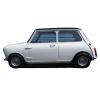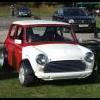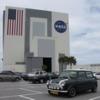
Why Does Running Lean Cause Additional Heat?
#16

Posted 06 December 2011 - 10:07 PM
#17

Posted 06 December 2011 - 10:09 PM
#18

Posted 06 December 2011 - 10:16 PM
If you are looking for reference material, "Internal Combustion Engines and Air Pollution" by Edward F. Obert (1973 edition) is very good. Incredibly, Amazon still has it for sale:
http://www.amazon.co...n/dp/0700221832
Chapter 8 (Fuels) talks about the the different desired characteristics of fuels for the spark ignition(petrol/gasoline) and compression ignition (Diesel) engines. It also states that most of fuel characteristics that are desirable for the SI engine are totally undesirable on the CI engine.
In the ideal case for a SI engine, some of the fuel should vaporize in the intake manifold for proper distribution, some during compression and the rest during combustion to provide cooling of the combustion chamber to prevent auto ignition. Like was mentioned in previous posts, that prevents the uncontrolled burn due to auto ignition that results in noise, vibration, excess heat and damage. The high peak combustion temperature also causes pollution in the form of Nitrogen oxides. Exhaust gas recirculation was introduced to combat those high temperatures but that dilutes the air/fuel mixture causing some power loss. The new direct (in the combustion chamber) fuel injection similar to Diesel, aids in the cooling of the mixture and should reduce the amount of EGR needed.
Keep in mind that almost anything reacts or burns with excess Oxygen and high temperature.
Ivan
#19

Posted 06 December 2011 - 10:18 PM
And it doesn't matter that the process is very fast, because you are repeating it many times per second, the heat has to go somewhere....!
Yes, but as you originally said it makes sense to be due to the energy trasfer to the incoming fuel and outgoing vapours. Surely if it's reaction kinetics then retarding the spark would give less time for reaction and thus it would be cooler?
Ivan, we posted at the same time. I've now had to turn the tv off to read your post....!
Edited by charliedurrant, 06 December 2011 - 10:23 PM.
#20

Posted 06 December 2011 - 10:23 PM
Hi,
If you are looking for reference material, "Internal Combustion Engines and Air Pollution" by Edward F. Obert (1973 edition) is very good. Incredibly, Amazon still has it for sale:
http://www.amazon.co...n/dp/0700221832
Chapter 8 (Fuels) talks about the the different desired characteristics of fuels for the spark ignition(petrol/gasoline) and compression ignition (Diesel) engines. It also states that most of fuel characteristics that are desirable for the SI engine are totally undesirable on the CI engine.
In the ideal case for a SI engine, some of the fuel should vaporize in the intake manifold for proper distribution, some during compression and the rest during combustion to provide cooling of the combustion chamber to prevent auto ignition. Like was mentioned in previous posts, that prevents the uncontrolled burn due to auto ignition that results in noise, vibration, excess heat and damage. The high peak combustion temperature also causes pollution in the form of Nitrogen oxides. Exhaust gas recirculation was introduced to combat those high temperatures but that dilutes the air/fuel mixture causing some power loss. The new direct (in the combustion chamber) fuel injection similar to Diesel, aids in the cooling of the mixture and should reduce the amount of EGR needed.
Keep in mind that almost anything reacts or burns with excess Oxygen and high temperature.
Ivan
So, as R1 said initially, it's simply energy transfer to the incoming fuel. And nothing to do with reaction kinetics....?
#21

Posted 06 December 2011 - 10:23 PM
#22

Posted 06 December 2011 - 10:26 PM
Yes, of course, retarding or advancing ignition timing does affect the combustion temperature but the OP was not about ignition timing, it was about lean mixtures!
I was going to move on to why retarding the ignition causes over heating next.
#23

Posted 06 December 2011 - 10:33 PM
Hi,
If you are looking for reference material, "Internal Combustion Engines and Air Pollution" by Edward F. Obert (1973 edition) is very good. Incredibly, Amazon still has it for sale:
http://www.amazon.co...n/dp/0700221832
Chapter 8 (Fuels) talks about the the different desired characteristics of fuels for the spark ignition(petrol/gasoline) and compression ignition (Diesel) engines. It also states that most of fuel characteristics that are desirable for the SI engine are totally undesirable on the CI engine.
In the ideal case for a SI engine, some of the fuel should vaporize in the intake manifold for proper distribution, some during compression and the rest during combustion to provide cooling of the combustion chamber to prevent auto ignition. Like was mentioned in previous posts, that prevents the uncontrolled burn due to auto ignition that results in noise, vibration, excess heat and damage. The high peak combustion temperature also causes pollution in the form of Nitrogen oxides. Exhaust gas recirculation was introduced to combat those high temperatures but that dilutes the air/fuel mixture causing some power loss. The new direct (in the combustion chamber) fuel injection similar to Diesel, aids in the cooling of the mixture and should reduce the amount of EGR needed.
Keep in mind that almost anything reacts or burns with excess Oxygen and high temperature.
Ivan
So, as R1 said initially, it's simply energy transfer to the incoming fuel. And nothing to do with reaction kinetics....?
It is to do with both, you have to think of all the processes happening leading up to and including combustion.
If you have less fuel, the start of combustion T is higher due to the reduced cooling on intake expansion. So when you spark, the temperature in the cylinder is higher.
Then, because the temperature at the start of combustion is higher, the rate of reaction is faster and the resultant overall temperature of the engine is hotter!
#24

Posted 06 December 2011 - 11:23 PM
Then, because the temperature at the start of combustion is higher, the rate of reaction is faster and the resultant overall temperature of the engine is hotter!
I'm afraid the faster the reaction rate really doesn't make sense to me in terms of it, itself, causing higher block temperatures.
If the reaction is quicker the overall energy produced is no more than if it was slower. Due to the conductivity of the metal I would expect a slower reaction actually to allow more energy to transfer to the block. I refer back to what I said about a wood burner. The slower the wood burns the hotter the room. If I flash burn some wood most of the heat goes out the exhaust.
The only way the reaction rate can make sense is due to the higher flash temperature causing other material (Nitrogen as Ivan said and explained) to react.
So do we agree that reaction kinetics don't directly cause higher block temperatures but they indirectly cause higher block temperatures by providing a higher 'point' temperature which will cause more inert materials to oxidise?
Charlie
p.s. I can't understand why this is not in the Haynes manual general servicing section as it's so useful for keeping your mini running.
#25

Posted 07 December 2011 - 12:38 AM
Based on my understanding and using the CI engine as the example this is my interpretation. In the CI engine the compression process initiates with air only, which might even be coming out of a supercharger at higher pressure and temperature than ambient. As the compression progresses the temperature and pressure continues to increase. As the piston reaches TDC, or just past it, the injection fuel starts. There is a slight delay and the fuel ignites. This delay causes a small uncontrolled burn (per Obert) that causes the characteristic Diesel clatter. After that, the fuel continue to be injected and burned as the piston is moving down, the volume expanding and the temperature and pressure increasing. This happens until the injection of fuel stops. So, in my mind it is a continuous "smooth" burning process except for the initial delay. There is no explosion.
Now, for the SI engine the process is very different but we expect it to behave in a similar fashion. We basically build a bomb and electrically ignite it and expect for it to burn "slowly". So, in order for the bomb not to blow up and rather burn there are a number of requirements that need to be met. The compression ratio of the engine must be low enough not to ignite the fuel just by pressure and temperature. The fuel must have the proper octane rating for the given compression ratio so that it will not auto ignite. The temperature of the combustion chamber must be low enough during compression to prevent the auto ignition. The timing of the of the ignition has to start before TDC to ensure that the peak pressure occurs after TDC. However, we are expecting a "smooth" burn but we already have all the fuel and oxygen trapped at high pressure and temperature and ignited it. So, in order for that to happen there can not be excess oxygen. There can not be any "hot spots" in the combustion chamber that might start another ignition point. The shape of the combustion chamber must be right to provide a flame front to ensure that there is combustion not explosion. There are probably many other factors that come into play that I can not even visualize. If the combustion occurs too fast so that the piston can not move fast enough to keep up with the expansion, the temperature will go up in the combustion chamber and that energy as heat and vibration will have to go somewhere like the coolant or melting something but not into useful work. In my mind, the modern gasoline/petrol engine is really amazing in how well it works considering the "hoops" that it has jump through.
Anyway my two cents worth,
Ivan
#26

Posted 07 December 2011 - 01:24 AM
Good point about fuel evaporation consuming heat, but that implies more fuel: with the chemical energy to make even more heat - I don't think the engine would work, if the chemical energy converted to heat was less than that absorbed as latent energy through evaporation.
I reckon most of it is simply Boyle's law, at engine rpm rates a split second corresponds to enough piston travel to make a huge difference to the chamber volume - double the volume, halve the temperature. Modern injection engines run leaner than old carb'd ones, I don't think there's a massive difference in how much heat they generate, hp for hp, if they are both set up with the correct ignition timing.
#27

Posted 07 December 2011 - 09:56 AM
Oxygen is a gas and hence compressible, if the fuel hasn't yet vaporised it's a non compressible liquid, more (excess ) oxygen molecules can be squeezed up against a fuel molecule to create a faster, and hotter reaction. Retarding the ignition lowers temperatures because the burn happens later with the piston getting further down the bore so there more volume, hence less pressure, hence less temperature.
Good point about fuel evaporation consuming heat, but that implies more fuel: with the chemical energy to make even more heat - I don't think the engine would work, if the chemical energy converted to heat was less than that absorbed as latent energy through evaporation.
I reckon most of it is simply Boyle's law, at engine rpm rates a split second corresponds to enough piston travel to make a huge difference to the chamber volume - double the volume, halve the temperature. Modern injection engines run leaner than old carb'd ones, I don't think there's a massive difference in how much heat they generate, hp for hp, if they are both set up with the correct ignition timing.
Ethel,
My understanding is that retarding the ignition causes higher temperatures.
Some interesting articles;
Retarding ignition - higher temps
http://www.smokstak.com/forum/showthread.php?t=70385
General article on ignition timing - I think this is a good read for all engine enthusiasts.
http://www.bristoldyno.com/tech/ignitiontiming.htm
Charlie
#28

Posted 07 December 2011 - 10:14 AM
#29

Posted 07 December 2011 - 12:06 PM
If the ignition is seriously retarded then the exhaust manifold gets seriously red. How do I know?
Hi cooperodeo,
Sorry if I am being daft, what do you mean by 'how do I know'?
Charlie
#30

Posted 07 December 2011 - 01:09 PM
1 user(s) are reading this topic
0 members, 1 guests, 0 anonymous users















